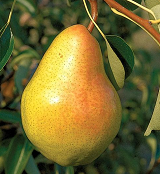Friday, 16 March 2018
07:55 AM
We're coming up on tax season here in the US, which as usual for me consists of digging around for forms and statements and random documentation. Selling our house last year just made it even more of an adventure. And speaking of adventures, let's talk about words.
 I ran across the word cakeism the other day, which made me chuckle. Cakeism derives from the somewhat opaque idiom about how "you can't have your cake and eat it too," which is generally glossed as meaning that you can't have two incompatible things, or more generally, you can't have everything you want. I ran across the word cakeism the other day, which made me chuckle. Cakeism derives from the somewhat opaque idiom about how "you can't have your cake and eat it too," which is generally glossed as meaning that you can't have two incompatible things, or more generally, you can't have everything you want.
Most of the sources where I found this word use it when discussing Britain and Brexit. In that context, cakeism describes the idea that Britain can leave the EU but still get the benefits that it's theoretically leaving behind. Depending on who you ask, this is either Britain's actual negotiating strategy or folly. When it's used in this way, the word is of course pretty new. It was submitted as a new-word suggestion to the Collins Dictionary people in February; that's also when Urban Dictionary got an entry.
As an aside, the article where I saw cakeism talks about the origins of the idiom in English and helpfully provides equivalent idioms in other languages, most of which seem to make more sense. For example, according to them, in French you say "to want the butter and the money from the butter."
 For unexpected word origins, we're back to the kitchen. I was reading about soups the other day and somehow got to the Wikipedia page about minestrone, a primarily vegetable soup. In the history section, it says "The ancient Romans recognized the health benefits of a simple or 'frugal' diet," and then continues "from the Latin fruges, the common name given to cereals, vegetables and legumes." For unexpected word origins, we're back to the kitchen. I was reading about soups the other day and somehow got to the Wikipedia page about minestrone, a primarily vegetable soup. In the history section, it says "The ancient Romans recognized the health benefits of a simple or 'frugal' diet," and then continues "from the Latin fruges, the common name given to cereals, vegetables and legumes."
This part is true. But the frux stem also meant "profit" or "utility" or "value," so there was a figurative sense to the word, which we still have today ("fruit of one's labors"). While the word frugal does literally mean "relating to fruit," our sense of frugal derives from the figurative sense: to get good value or utility out of a thing. At least, that's my take on the issue.
Like this? Read all the Friday words.
[categories]
Friday words, language
|
link
|